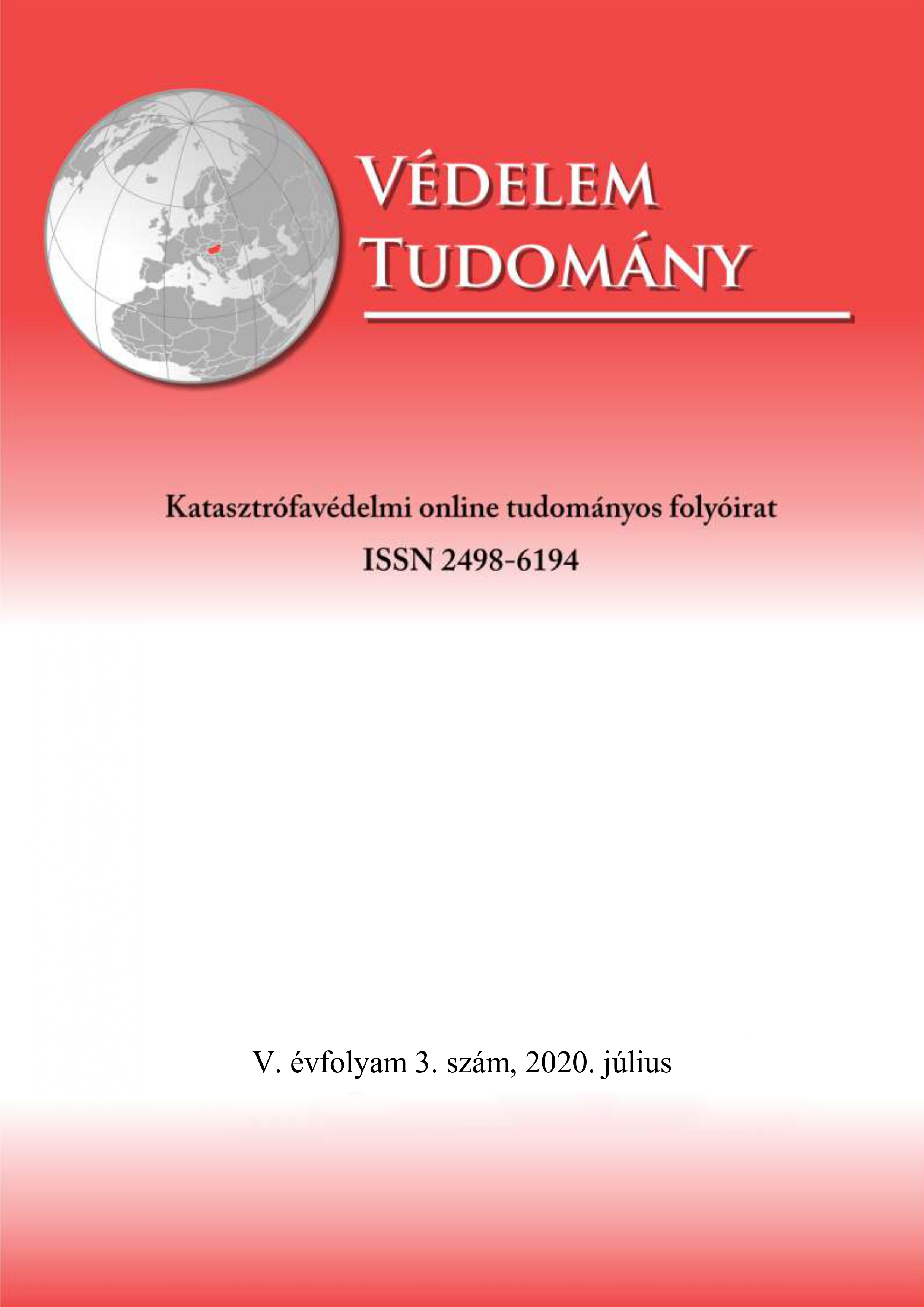Safety through organisational learning, or evaluating disaster management exercises with SOL analysis, part I.
Abstract
Safety through Organisational Learning methodology (SOL), as a proven tool for supporting organisational learning from safety relevant events, means that an organisation conducts systematic analyses of accidents, incidents or near misses and feeds the resulting experience back to its members using an appropriate reporting or management system. It was the first time that SOL‐methodology was used for Evaluating an International Exercise by European Project. The general purpose of the project was testing SOL as a post‐evaluating procedure for this full‐scale field exercise. The particular purposes of the event analysis were to identify the main individual, group or organisational reasons for, and key technological factors of, the events that occurred. Analysing with SOL allows the identification of concrete alternative corrective actions/measures by which the probability that similar events occur in the future can radically be reduced. Furthermore, such measures help organisational learning, thereby contributing to the development and maintenance of a long‐term, safe organisational culture. The first part introduces classical event analysis methods and psychology of the SOL safety event analysis methodology, and the second part describes the evaluation of disaster management exercise (drill) by SOL analysis.
References
Dr. Izsó Lajos, Dr. Lógó Emma, Nesztinger Péter - Eseményelemzés, Budapesti Műszaki és Gazdaságtudományi Egyetem, Budapest 2014, ISBN 978-963-313-121-3; pp 1-120,
Hollnagel, Erik: The Changing Nature Of Risk. Ergonomics Australia Journal 22, 1-2, pp 33-46, 2008. Elérhető a következő címen: Védelem Tudomány – V. évfolyam, 3. szám, 2020. 7. hó 76
https://www.researchgate.net/publication/45514196_The_Changing_Nature_of_Risks [elérhető 2019. november 15-én]
W. G. Johnson: The Management Oversight and Risk Tree - Mort Including Systems Developed Idaho Operations Office and Aerojet Nuclear Company, U.S. Atomic Energy Commission Division of Operational Safety, February 12, 1973, pp 1-598, Elérhető a következő címen: https://www.nri.eu.com/SAN8212.pdf [elérhető 2019. november 15-én]
International Atomic Energy Agency (IAEA): Review of methodologies for analysis of safety incidents at NPPs, Final report of a co-ordinated research project 1998–2001, Bécs, 2002, pp 1-38, Elérhető a következő címen: https://wwwpub.iaea.org/MTCD/Publications/PDF/te_1278_prn.pdf [elérhető 2019. november 15-én]
Bárány Péter: Kiváltó ok elemzési és feltárási eszközök különböző tanácsadói módszertanokban és kultúrákban, CMC minősítő előadás 2010, Elérhető a következő címen: http://vtmsz.hu/fileadmin/vtmsz/CMC_informaciok/barany.pdf [elérhető 2019. november 15-
én]
Tráj Krisztina, Pokorádi László: Kockázatelemzési módszerek szemléltetése a diákélet egy példáján keresztül, Műszaki tudományos közlemények 3, XX. Fiatal Műszakiak Tudományos Ülésszaka, 2015. Kolozsvár, pp 311–314
BM OKF: Kvalitatív módszerek – HAZOP, Budapest, 2014, Elérhető a következő címen: http://kok.katasztrofavedelem.hu/letoltes/document/document_193.pdf [elérhető 2019.
november 15-én]
Becker, G. (2017) ‘Bernhard Wilpert – The Father of SOL - Safety through Organisational’ Accessed October 02, 2017. https://www.aio.tuberlin.de/fileadmin/a3532/Kollegen/Bernhard/g_becker_sol.pdf
Ziedelis, S., Noel, M. (2017) Comparative Analisys of Nuclear Event Investigation Methods, Tools and Techniques: Interim Technical Report. Accessed October 02, 2017.
Fahlbruch, B., Schöbel, M. (2011) ‘Safety through organizational learning: A method for event analysis’ Safety Science no. 49. pp. 27-31.
Wilpert, B., Maimer, H. (2017) ‘Computer supported Event Analysis (SOL – Safety through Organizational Learning)’ Berlin University of Technology, Germany Research Center System Safety, Accessed October 02, 2017. http://erg.bme.hu/sol/SOLVE_BW&HM_2001.pdf
Wilpert, B., Fahlbruch, B. (2017) ‘SOL – Safety through Organizational Learning. A Computer assisted Event Analysis Methodology’ Accessed October 02, 2017. https://shemesh.larc.nasa.gov/iria03/p011-fahlbruch.pdf
Izsó Lajos: SOL Safety through Organizational Learning PARt.. eseményelemzési továbbképzés Tengelic, Interneten elérhető: http://docplayer.hu/33819749-Sol-safetyafetythrough-organizational-learningearning-tengelic-november-pszichologi-az-eload-2.html (2018.09.09.)
MVM Group (2014) Occupational health and safety: Sustainability Report (Hungarian Electrical Works Private Limited Company). pp.63-64.
Final Evaluation Report (2017) - Command Post Exercise and Full-scale Field Exercise of EUrban Water Aid project, Accessed Jun 4, 2018.
Grant Agreement (2015) – ECHO/SUB/2015/719073, Union Civil Protection Mechanism Exercises - 2015 Call for Proposal, 03612/2015, Accessed Jun 4, 2018. https://docs.wixstatic.com/ugd/2dda35_660eb5197a7b4b5a9a3f6ad1cfd50d85.pdf
Izsó, L., Antalovits, M. (2006) - Emberi tényezők az atomerőműben. Belső tanulmány. Paks– Budapest.
Izsó Lajos: SOL Safety through Organizational Learning PARt.. eseményelemzési továbbképzés Tengelic, Interneten elérhető: http://docplayer.hu/33819749-Sol-safetyafetythrough-organizational-learningearning-tengelic-november-pszichologi-az-eload-2.html (2018.09.09.)
Jackovics P, Czaban C. Analysing a disaster management field exercise with SOL‐methodology. Journal of Flood Risk Management. 2018; e12503. https://doi.org/10.1111/jfr3.12503, Impakt Faktor = 3,24 (2019-ben)
Jackovics, Peter: Evaluation a City Emergency Management Exercise for Organizational Learning, Interdisciplinary Description of Complex Systems - scientific journal 17 : 1-B pp. 177-186. , 10 p. (2019)
Emery FE, Trist EL. Socio-technical systems. In: Churchman CW, Verhulst M, editors. Management Sciences, Models and Techniques: Proceedings of the sixth international meeting of the Institute of Management Sciences. Vol. 2. New York: Pergamon Press; 1960. p. 83–97.




